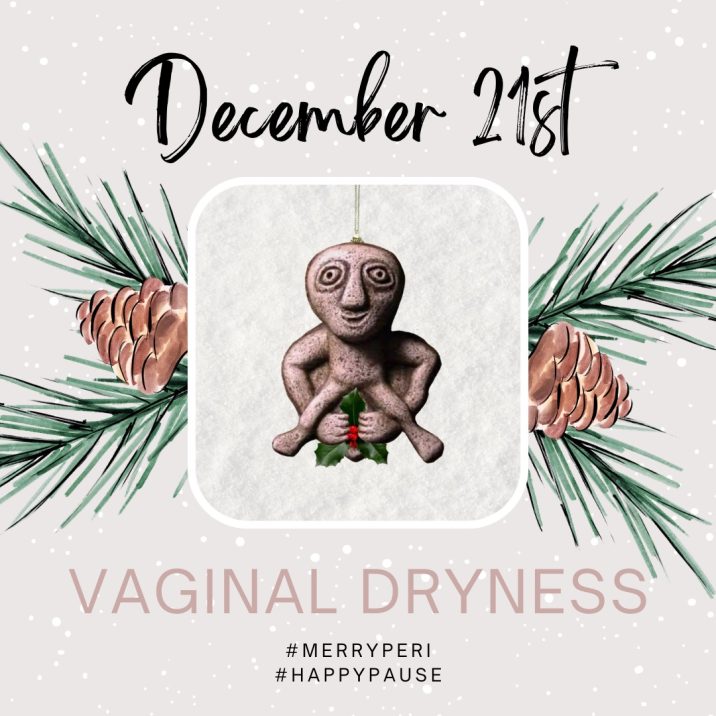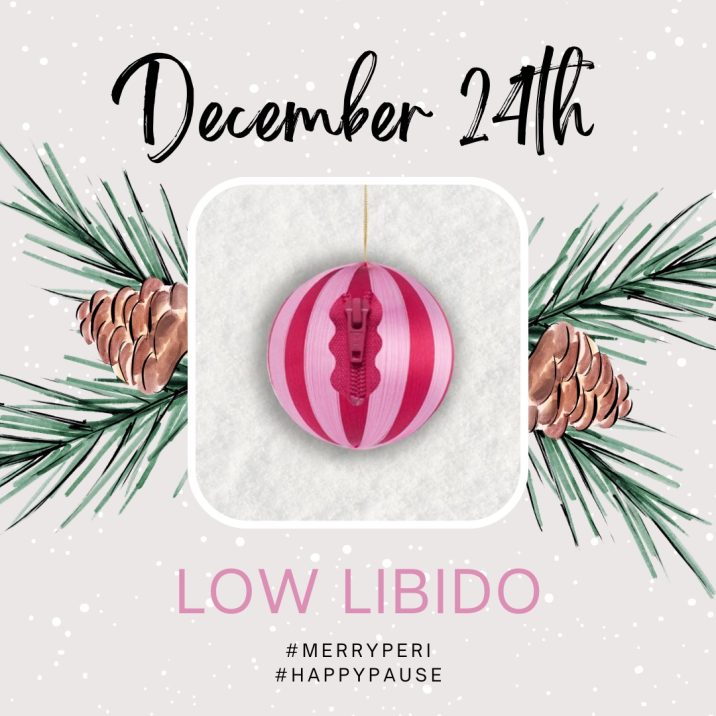Women in peri or full menopause are still having the gold standard treatment withheld for spurious reasons.
A bear walked into my surgery and stood there just staring at me blankly … Then, eventually, she roared. I said: “Why the big pause?”
The bear said, holding up her big paws: “What, these? Yes, I’ve always had them, but now they are so sore and stiff and also they tingle at night. And I just keep forgetting what I am going to say. Is that normal? I think I might have dementia, or a brain tumour. And I keep roaring at people too. I get so angry and then I don’t even know what I was angry about. And now my back is really itchy, and I just can’t sleep. But I read somewhere that maybe it might all be this hormone thing; I think it’s called MenoPaws?”
The bear in this Christmas cracker joke (the only jokes I can ever remember, sadly) was primarily to get your attention.
Last year I collaborated with some amazing people from the global menopause community to elevate awareness of the often misunderstood and overlooked symptoms of perimenopause and menopause, of which there are many, through a social media advent calendar called #deckthehormones.


Because, like the bear with “MenoPaws”, women in perimenopause often present with neuropsychiatric symptoms such as forgetfulness or “brain fog”, irritability and tingling peripheries or physical symptoms such as itching and joint pain. Which, when you have no idea why they are happening, can be really frightening. For other women it can be heavy or flooding periods, a loss of pleasure in life – anhedonia – and sometimes quite severe depressive symptoms.
And although we all know vasomotor symptoms are a symptom of peri/menopause, they often only appear in later perimenopause or after the last menstrual period and 20% of women never have them at all, so we cannot rely on them as a diagnostic criterion.
Unlike the MenoPaws Bear, roaring at your GP is unlikely to build a therapeutic relationship (although they are roaring about us on social media).
Through our social media campaign, I have read thousands of comments by women who think (or, I would say, they know) that they are in perimenopause or menopause but are being refused hormone therapy by their doctors. They are told that their bloods are normal, or they are too young or too old for menopause, or that they have a contraindication to hormone therapy.
These women are understandably frustrated as well as suffering, mentally, physically and financially. As GPs we are perfectly positioned to diagnose and treat both perimenopause and menopause with a holistic management plan that should include discussion of hormone therapy. And when you do you will unlock some of the most rewarding medicine possible. Every day I see women who are transformed by hormone therapy. Their lives have not changed but their endogenous biochemistry has been reset to cope with the multiplicity of mid-life demands.
So here are my Bear Essentials for the Management of Peri and Menopause:
- Definition:
- Natural menopause is 12 months after the last menstrual period. Average age 51
- Early menopause is under 45.
- Primary or premature ovarian insufficiency (POI) or premature menopause is under 40 but 5-10% can still ovulate randomly. POI is the preferred term for younger women.
- Surgical menopause occurs when the ovaries are removed.
- Medical menopause can be caused by radiotherapy or certain medications including chemotherapy
- Perimenopause is the time a woman has symptoms before those points in time above. It can last years.
- Diagnosis:
- Almost any symptom at all can be caused by perimenopause; not all women will have hot flushes and they usually appear later in the transition. Heavy menstrual bleeding, anxiety and insomnia are often early symptoms.
- FSH LH are usually normal in perimenopause, irrespective of age (yes even if a woman is under 40, and lots of women enter perimenopause by their late 30s). Bloods are useful to exclude other causes like thyroid/iron deficiency, which may be COMORBID conditions and for a general health check.
- Check FSH LH estradiol and testosterone if a woman is under 40 and has stopped having periods. This is POI and secondary causes need investigating. It is usually unexplained.
- Treatment:
Body identical hormone therapy is the gold standard treatment for perimenopause and menopausal symptoms:
ESTRADIOL+ PROGESTERONE+ /-TESTOSTERONE
These 3 hormones are chemically identical to ovarian sex hormones.
Estradiol is an estrogen
Progesterone is a progestogen
Testosterone is an androgen
- Step 1: transdermal estradiol gel or patch (Estraderm / Estradot / Sandrena / Estrogel) plus oral micronised progesterone (Prometrium). Patch supply is currently a very disrupted so gels are a safer choice for now.
- Step 2: consider if dose of estradiol is adequate at review after two to three months. We all absorb transdermal medicines very differently. Treat to symptoms, NOT bloods. Some women need very little, others need A LOT!
- Step3: consider adding transdermal testosterone (AndroFeme). It is effective for a lot more than libido – energy, brain fog, pain – but not all women need it or respond to it. Check baseline testosterone/FAI. Start at 0.5ml daily. Check levels at three, six and twelve months, then annually. Keep in female range. Limited data for safety beyond two years but most women prefer to stay on it with that knowledge.
- If women have migraines start low and go slow. Patches are better.
- Perimenopausal women should have cyclical Prometrium (two capsules, 14 days on 14 days off), but some prefer continuous for mood and sleep, preventing migraine and for compliance.
Post-menopausal women can have continuous Prometrium (one capsule every night, taken before bed). Some women do not tolerate it.
All progestogens/progestins are not the same. Progesterone is our natural progestogen and is a potent neurotransmitter, helping sleep and anxiety and acts directly on bones (and probably everything else). But it is less effective for heavy bleeding.
ProgestOGENs like norethisterone or MPA ONLY protect the endometrium.
Prometrium capsules contain gelatin so not suitable with mammalian meat allergy, but can get compounded in “veggie caps”.
The Mirena (synthetic progestOGEN) is great for contraception and heavy bleeding but does not contain progesterONE. (10% women hate the mirena).
Women CAN have both Mirena and Prometrium. Women with a history of endometriosis should have both.
- Women who have had a hysterectomy CAN have Prometrium.
Women who have had a hysterectomy and have a history of endometriosis SHOULD have Prometrium.
- A significant number of women on MHT also need vaginal oestrogen.
Consider offering vaginal oestrogen to ALL older women to prevent urinary symptoms and UTIs. Vaginal DHEA “Intrarosa” is coming this year.
Vaginal oestrogen is NOT MHT and it is safe in breast cancer patients.
- MHT is not contraception, and the combined contraceptive pill is NOT MHT.
Contraception options with MHT include vasectomy, condoms, IUDs, POPs and Slinda. Slinda (off label) and Mirena can be used as the progestogen part of combined MHT
- MHT should be part of a package that includes nutrition, sleep, movement, breathwork and social connection. But MHT can really enable women to make better lifestyle choices. It is not one or the other. Both is best.
3. Ideas, concerns and expectations: Doctors AND Patients.
- There is overwhelming evidence that timely use of body identical HT reduces most chronic diseases in women, including the three main causes of death and disability: osteoporosis, dementia and cardiovascular disease.
- The majority of the published literature suggests a small increase in breast cancer risk with synthetic progestOGENS but NOT with progesterone or estradiol.
Estradiol alone has been associated with a significant reduced risk of breast cancer.
- If a woman has a history of breast cancer and wants a trial of MHT, refer her to a specialist menopause clinic if you do not feel confident to do shared decision making.
- There is no absolute contraindication to MHT. My body my choice.
- Use the www.balance-menopause.com website for doctor and patient information and upskill via their Confidence in the Menopause course. https://newson-health.teachable.com/p/confidence-in-the-menopause
And if you want some fun pics to use to talk to your patients about all the weird and wonderful symptoms hormone flux causes feel free to check out our global peri and menopause awareness advent calendar: search #deckthehormones on Instagram and Linkedin. You will find lots of amazing doctors, advocates and women all saying the same thing.
If I can leave you with one positive thought, as our profession struggles to fill training places and we are assaulted on all fronts, it is that since upskilling in menopause I absolutely LOVE my job! I look forward to every day because practising hormone-centred care means that I see the majority of my women getting better and not just the antidepressant “I exist” better, I mean “Woohoo I am BACK!” better on hormone therapy.
And that really is something to roar about!
Dr Ceri Cashell started her career in general practice in 2004 in Edinburgh but since 2012 she has been working in Avalon, Sydney, where she is a practice principal and owner. She is a passionate advocate for increased awareness of the effects of hormones on physical and mental health.
Disclosure: Dr Ceri Cashell has received sponsorship for a future event from Besins, the manufacturer of Estrogel Pro, but has not received any payment or honorarium.


